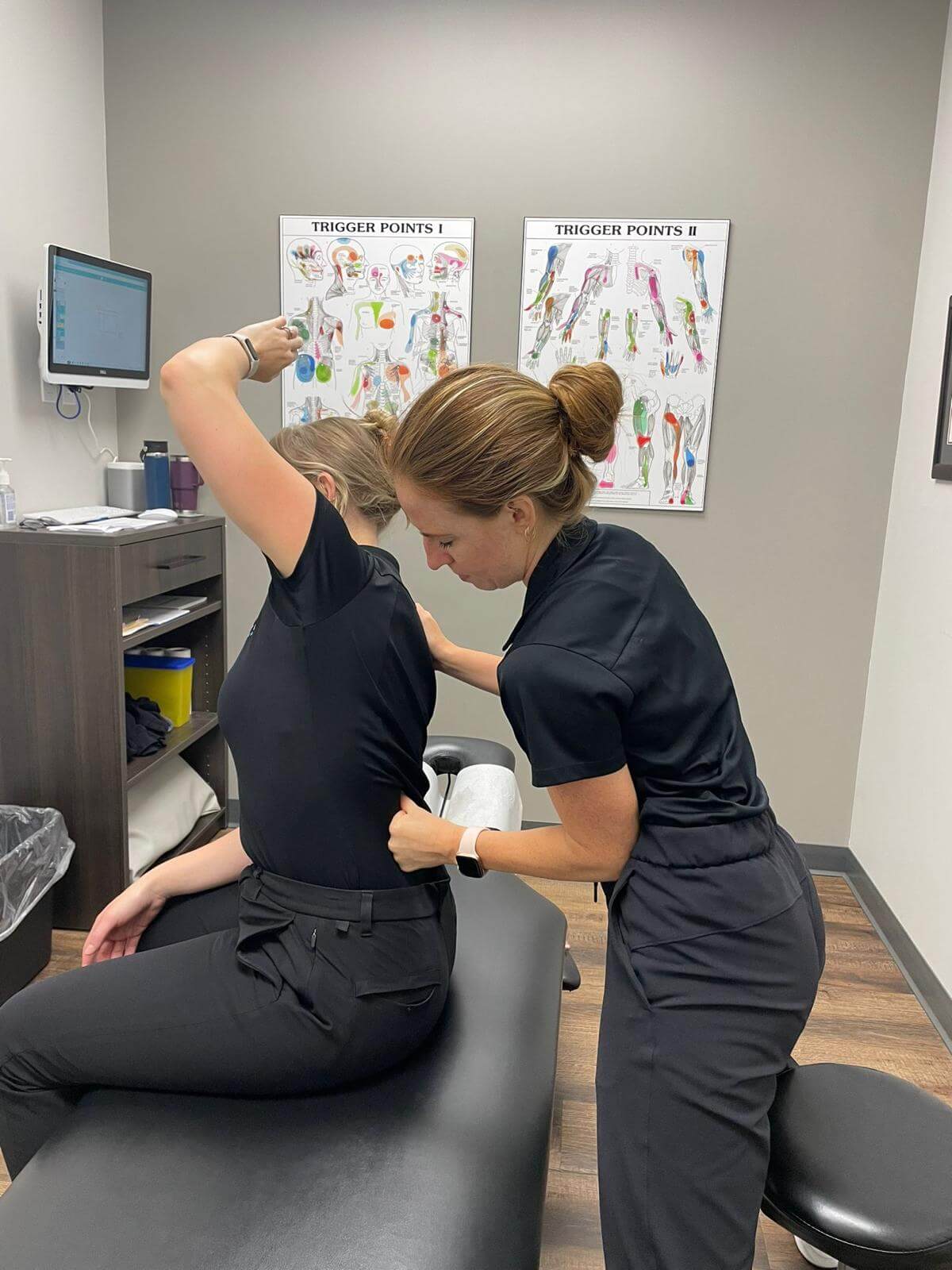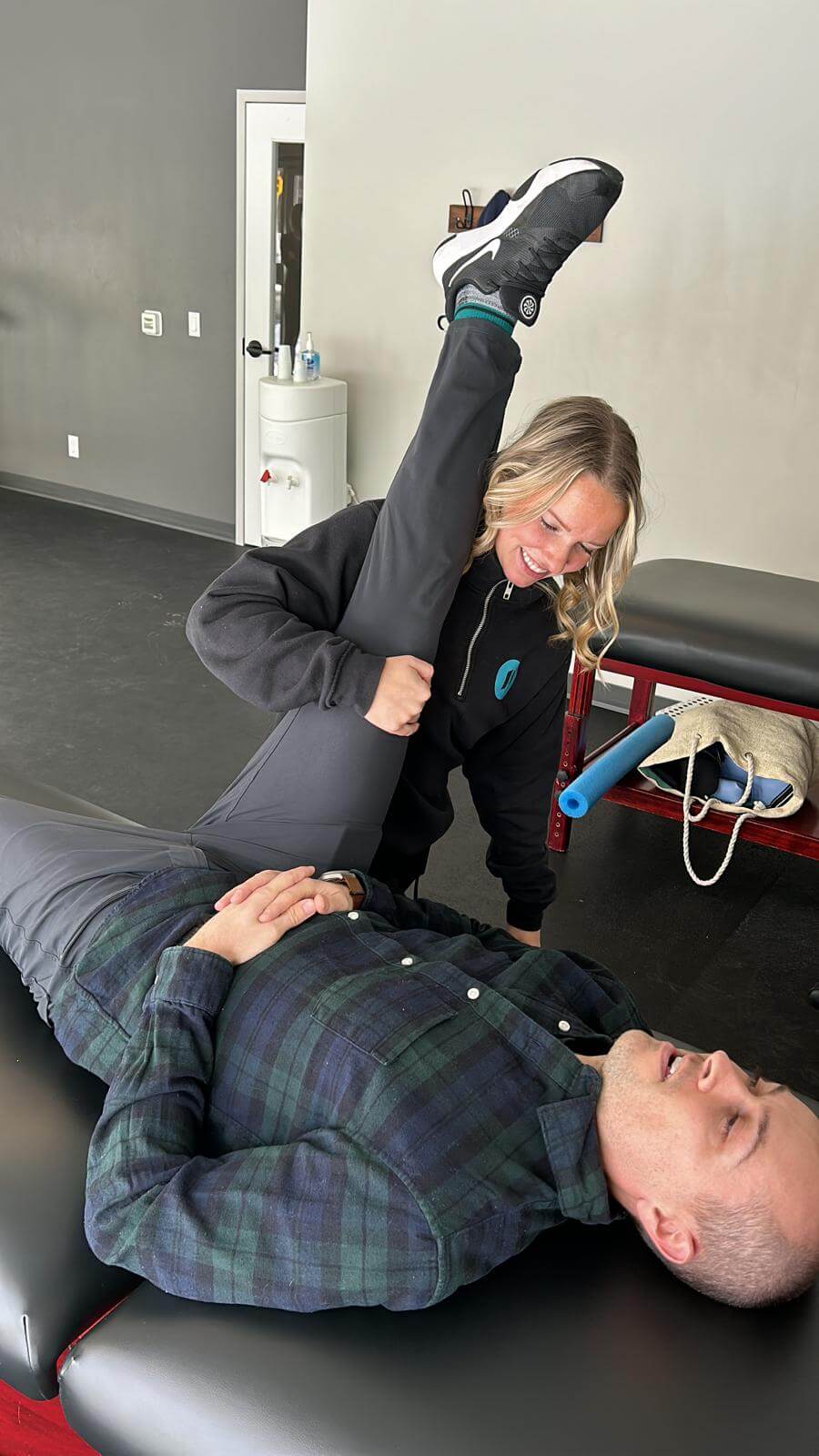Physiotherapy Waterloo
Rehabilitation is an important part of any physiotherapy treatment plan in Waterloo. Performing exercises and stretches at home loosens and strengthens muscles between visits. This decreases pain, makes the treatment more effective, prevents the problem from returning, and gives you more power in the therapeutic process!
Corrective exercises are an essential part of all our physiotherapist’s treatment plans because they recognize the importance of providing all aspects of treatment to maximize results. If your therapist is not currently giving you exercises then you are not reaching your full healing potential!
Commonly Treated Conditions
Every day our Waterloo physiotherapists treat patients and prescribe exercises for the following conditions:
- Lower back pain (see the exercises)
- Shoulder
- Rotator cuff
- Knee
- ACL
- Hamstring
- Ankle

When injuries occur your muscles become weak due to disuse or injured tissue. This can be from a sudden traumatic injury or even a gradual repetitive stress injury like postural problems. As people slouch forward the muscles in the front of their body tighten and shorten, while the muscles on the back of their body lengthen and become weaker. This is called Upper Crossed syndrome and is effectively treated with proper supervised corrective exercises as well as treatment.
Physiotherapy, or physical therapy, is a healthcare profession that assists people to restore, maintain, and maximize their strength, function, movement, and overall well-being.
Physiotherapists have an in-depth knowledge base of how the body works, as well as specialized manual skills to assess, diagnose, and treat symptoms of injury, illness, and disability. Physiotherapy includes rehabilitation, as well as pre-habilitation, or prevention of injury and promotion of health and fitness. Physiotherapists often work in teams with other health professionals to help meet an individual’s healthcare needs.
Our Waterloo Physiotherapists
 One of our friendly physiotherapists will use their advanced knowledge of how the body works and moves to perform a detailed assessment to diagnose your condition and look for any contributing factors to your symptoms. The techniques used by your physiotherapist are selected based on the combination of factors found in the assessment. Each treatment technique creates its own physiological effect in the body including:
One of our friendly physiotherapists will use their advanced knowledge of how the body works and moves to perform a detailed assessment to diagnose your condition and look for any contributing factors to your symptoms. The techniques used by your physiotherapist are selected based on the combination of factors found in the assessment. Each treatment technique creates its own physiological effect in the body including:
- Improve muscular motor control to improve biomechanical function
- Reduce compression on nerves and blood vessels to reduce symptoms and increase circulation
- Reduce compressive load caused by muscle shortening that leads to wear and tear on the joint surface
- Restore lost motion of the joints of the body
- Correct any muscle imbalances that may be contributing to your condition by developing an individualized exercise program to stretch, strengthen or relax involved muscles
- Stimulate optimal tissue healing of tendons, muscles, and ligaments
- Educate on self-treatment and preventative measures
- Reduce pain by creating pain blocking stimuli and releasing bodily chemicals (endorphins) that help relieve pain
- Improve the flexibility and mobility of muscle, fascia and nerves
- Prepare the body for a return to activity
Orthopedic Rehabilitation
Orthopedic Rehabilitation is the assessment and treatment of all musculoskeletal conditions (including back and neck pain, fractures and sprains) caused by repetitive “wear and tear,” a sports injury, fall, car accident or surgery. The problem can be acute or chronic. Active exercise therapy, soft tissue release and joint mobilizations are the focus of treatment, to allow you to regain muscle strength, flexibility, balance and full movement and function. Teaching correct postural alignment and core stabilization are also essential components of successful rehabilitation.
Pre-habilitation or “prehab” is treatment prior to an upcoming surgery. Learning specific exercises to strengthen your body prior to surgery will help reduce your recovery time significantly.
Vestibular Rehabilitation Therapy is a type of physiotherapy that utilizes special maneuvers and customized exercises to relieve vertigo, dizziness, visual disturbance and/or imbalance.
SFMA is an advanced movement-based diagnostic system used to clinically assess the fundamental movement patterns in people with musculoskeletal pain. While everyone will benefit from SFMA, it can be especially beneficial if you are recovering from an injury, not recovering as quickly as you would like or have a chronic problem that hinders your physical activities. SFMA is also a powerful tool to predict potential injuries in athletes and “weekend warriors.”
FAQ’s about our Waterloo Physiotherapy
What Should I Wear to my First Appointment?
What is Different About Price Health Physiotherapy?
What Treatments are Involved in Physiotherapy?
Do I need a referral from my family doctor for physiotherapy?
How often are my follow up appointments?
Can I combine physiotherapy with Chiropractic or Massage Therapy?
Initial Assessment – Waterloo Physiotherapist
We ask you to arrive 10 minutes prior to your scheduled appointment at Price Health so that you can complete your intake paperwork, including a health history. You should also bring a list of your prescription medications to this session.
During your appointment we will take a detailed history of your health concern and assess your functional limitations – that is, what can’t you do now that you want to be able to do? What causes you pain? What makes the pain worse? We will then proceed with assessing your movement, range of motion, strength and complete specific diagnostic tests. Your diagnosis will be explained and the proposed, customized treatment plan discussed with you. This first appointment usually takes 30 minutes. Contact us today to get started.

